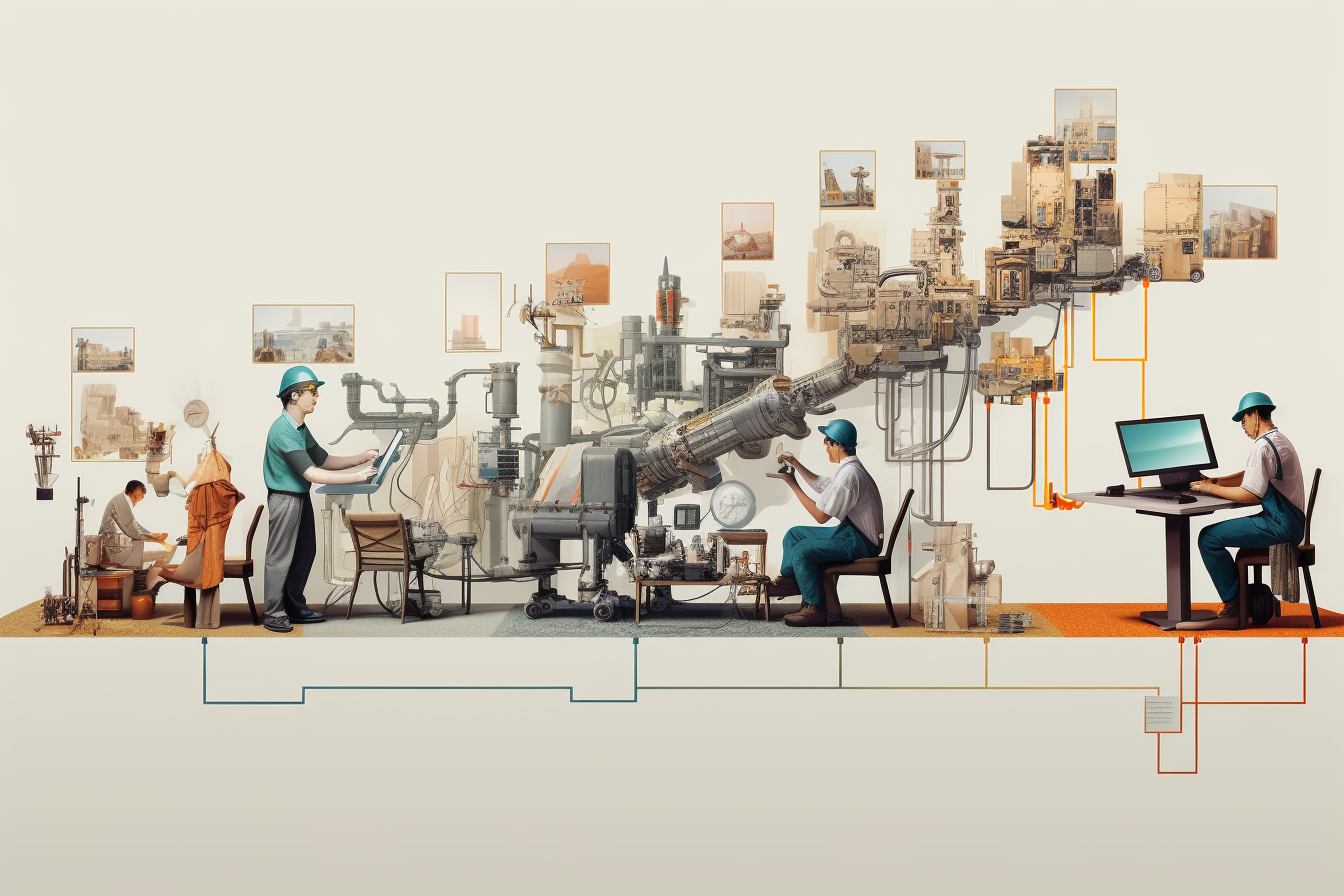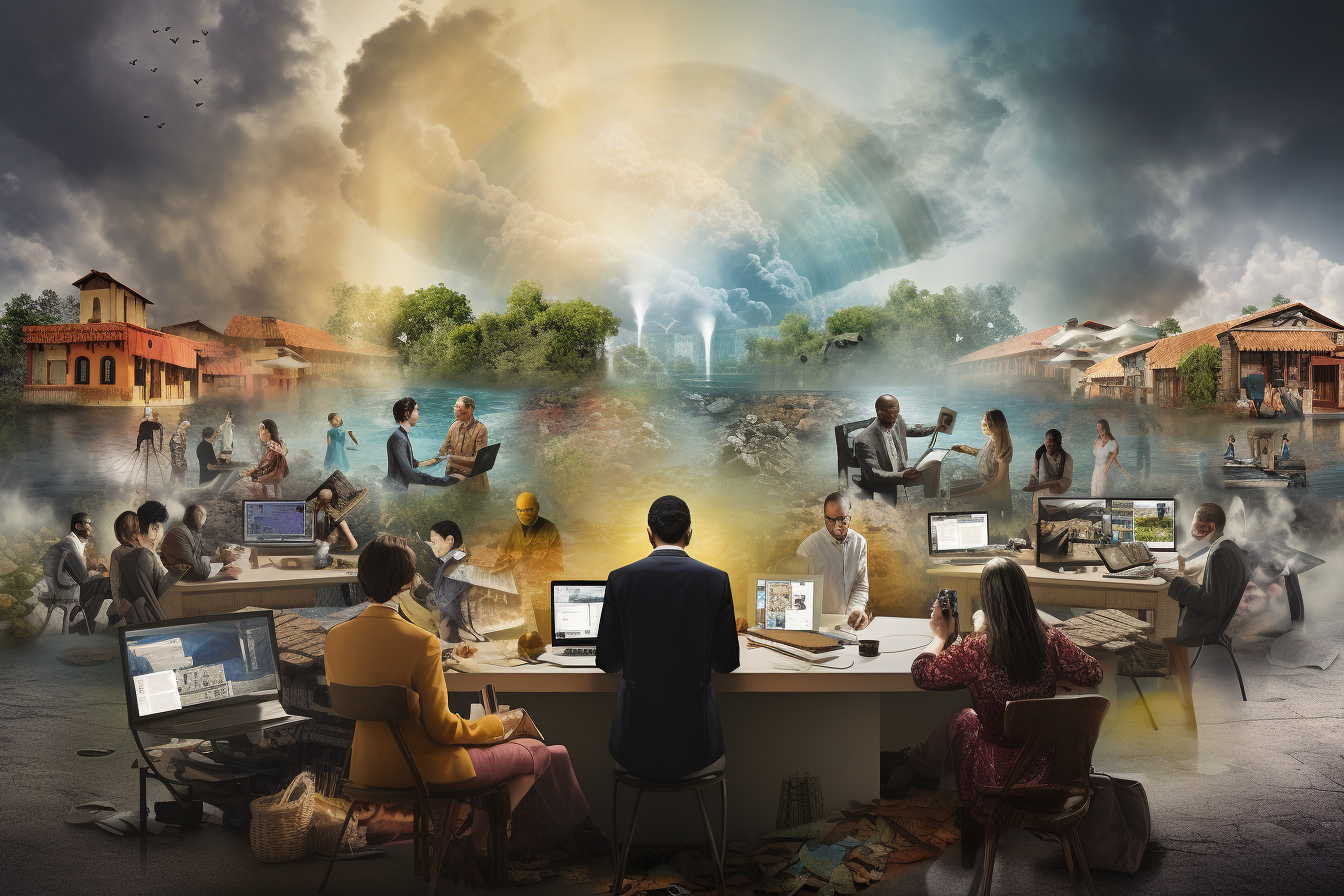Sending our digital doppelgänger to work

Universal Basic Income (UBI). This term, gaining considerable traction in recent years, refers to an economic model where every citizen, irrespective of their income or employment status, receives a standard amount of money regularly from the state. The potential benefits of such a system are numerous, with proponents arguing it could substantially reduce poverty and provide everyone with a basic financial safety net. This would, in turn, give people greater freedom to pursue work they find meaningful, contribute to their communities, or even retrain for future industries.
However, these promising advantages are not without opposition. Critics often question the economic feasibility of UBI. The idea of granting everyone a 'free money' allowance raises concerns around potential inflationary effects, where an increase in money supply could devalue currency and drive prices up. Furthermore, detractors voice worries about a possible drop in motivation to work, leading to a reduced workforce and overall productivity.
I would like to explore a possible future where UBI is not just an attractive proposition, but a viable one through the concept of us each having a digital doppelgänger.
What is a digital doppelgänger?
In the simplest terms, a digital doppelgänger is a virtual replica of an individual that can perform tasks and make decisions similar to their human counterpart.
These are not mere avatars but rather sophisticated digital beings powered by artificial intelligence, capable of learning, evolving, and functioning autonomously in the virtual world.

This concept of a virtual self is not new in the realm of science fiction. However, the rapid advancement in technologies like AI, machine learning, and virtual reality has brought us to the threshold where this fiction may become a reality. From virtual meetings to digital artwork, our virtual selves are increasingly taking on roles and responsibilities in the digital world, making the concept of a digital doppelgänger a matter of when, not if.
Within the context of UBI, these digital doppelgängers present an intriguing proposition. If they could perform tasks, make decisions, and essentially 'work' in a similar capacity to their human counterparts, could they earn an income on our behalf?
Your digital twin
It's important to acknowledge that we are in an era where machines are increasingly capable of carrying out tasks once exclusively performed by humans, spanning a broad spectrum from manual labour to complex decision-making.
In the realm of these automated processes and AI capabilities, digital doppelgängers have a unique advantage: they possess our personal knowledge, skills, and experiences. Essentially, you train your digital twin, spending time ensuring it understands your role, responsibilities, and ways of thinking. Over time, it learns from your decisions, absorbs your expertise, and mimics your work behaviour.

In this scenario, our day-to-day jobs might transform from performing tasks ourselves to maintaining and updating our digital doppelgängers. We would spend our time keeping them relevant, refining their skills, and providing them with the latest knowledge necessary for their tasks. The income they earn could then potentially be a new funding source for UBI, changing the face of work as we know it.
This transition could bring about significant shifts in how we perceive work and value human input. Imagine a world where your daily commute is a thing of the past, replaced by a virtual update session with your digital twin. You'd brief it on the day's agenda, update it with new information, and then let it get on with the 'work', whilst you engage in other aspects of life, such as learning, leisure or community activities.
In essence, we would delegate our tasks to these virtual replicas, and they would 'earn' on our behalf. The digital realm would become the primary workplace, transforming our traditional understanding of labour. This isn't about replacing humans in the workforce, but about redefining work itself.
What might seem like a futuristic concept could be closer than we think, and the following sections will delve into the feasibility of this arrangement, and the potential impact it could have on our economy and society.
Diving into the practicality of digital doppelgängers taking over our jobs, the viability of this idea hinges on several factors. While current technologies such as AI, machine learning, and virtual reality have indeed made impressive advancements, they aren't without their limitations.
Modern-day digital twins can mimic behaviours and learn from decisions. However, the question remains: can they fully capture the human touch – the creativity, empathy, and intuitive decision-making – that certain roles demand? These nuanced aspects of 'human-ness' currently pose a challenge to even the most sophisticated AI.
Yet, looking ahead, it's not unrealistic to envision a future where technology surmounts these hurdles. Continuous improvements and innovations might equip our digital twins to perform complex tasks, possibly bringing us closer to a reality where we begin our workday by briefing our digital twin.
The future of work
Nonetheless, this future doesn't come devoid of challenges. Issues of data security and privacy, the potential for job displacement, and societal resistance to such a radical shift in work paradigms are factors that warrant careful consideration. Hence, while the idea of digital doppelgängers at work appears promising, it is incumbent upon us to navigate these challenges effectively as we reimagine the future of work.

The potential for digital doppelgängers to take on our work opens the door to an intriguing prospect - could the income they earn help fund a Universal Basic Income (UBI)? At its core, the financial challenge of UBI has always been finding a reliable source of funding. The income generated by our digital counterparts could provide a solution.
As digital twins perform our work tasks, they could feasibly earn an income just as a human would, perhaps paid into a digital wallet. This income could be taxed, creating a steady revenue stream that could then be distributed back to citizens in the form of UBI.
Theoretically, this could stimulate the economy on multiple fronts. By guaranteeing a basic income for all, individuals could potentially spend more, thus boosting demand and driving economic growth. Furthermore, by decoupling work from income at a basic level, people might be freed to pursue more creative or entrepreneurial endeavours, fostering innovation and creating new sectors of economic growth.
However, like all economic shifts, there are potential hurdles to consider. These include ensuring the fair valuation of digital work, managing potential inflationary effects, and addressing the redistribution of wealth in a manner that promotes social equity.
Furthermore, the separation of work from income could have profound impacts on our work-life balance. Freed from the need to work solely for income, individuals might have more time for personal development, community engagement, or pursuing activities they're genuinely passionate about.
However, there are also significant concerns to address. Chief among these is the digital divide. The benefits of digital doppelgängers could be disproportionately enjoyed by those with access to the necessary technology, possibly widening socio-economic gaps rather than closing them.
Another significant issue revolves around privacy. The functionality of digital doppelgängers relies on comprehensive and continuous data collection. This opens a Pandora's box of potential data misuse, identity theft, and intrusive surveillance. Managing this ethically will be a significant challenge.
Lastly, the implementation of this system would require careful regulation and oversight to prevent exploitation and ensure fair remuneration for digital work. These ethical dilemmas and potential societal changes underscore the need for thoughtful deliberation and careful planning as we navigate this revolutionary concept.
If society successfully navigates the various economic, social, and ethical challenges that digital doppelgängers present, we might be standing on the precipice of a radical shift in how we perceive work. In essence, the traditional notion of a forty-hour work week could be replaced with a four-hour 'update and oversee' session with our digital counterparts.
As our digital twins take over the bulk of our tasks, our working hours could significantly reduce. The 'work' we do might transition to maintaining and improving our digital selves, freeing up vast amounts of time for personal pursuits, leisure, and community involvement.
But with the aid of digital doppelgängers, we might be closer than ever to realising this ideal. By shifting our day-to-day tasks to our digital counterparts, we could effectively transform work as we know it and move towards a true four-hour work week.

